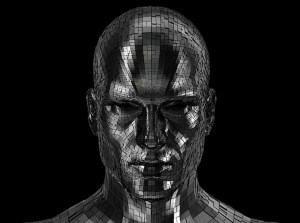 “Take this,” he said as we approached the shuttle bay. “In case I do not return.”
“Take this,” he said as we approached the shuttle bay. “In case I do not return.”
It’s a ritual we’ve been through ever since the Cousteau’s mission had changed from exploration to war. Except no one called it “war.” They called it, “defending the Coalition of Aligned Worlds.” Basil and I knew the truth though. The Kastellian Hegemony had been attacking planets on the fringes, and now there was an incursion into Coalition space that threatened the lives of no fewer than six colonies and eight systems.
“Come home to me,” I said, accepting the data solid from him. I knew what it contained. His final message to me. His final wishes. Nine times he had returned from one of these missions and I’d given the solid back to him, without ever scanning it. I wasn’t religious, but I prayed there would be a tenth.
“I promise to try.”
Five days later, Captain Rousseau came to my quarters in the middle of the dog watch. I invited her in and offered her tea. Tea made everything better… Almost everything. But I knew – I knew – she wouldn’t have come at that hour just for a chat.
“Zoe, I’m so sorry. As you know, Basil’s mission was to rescue a team of scientists from Beta Capella. The Kastellians were waiting. There were no survivors.”
“No.” I said. “You’re wrong.”
“Zoe… as his captain… as your friend… I’m not wrong.”
“No!” I said again, louder, more emphatically.
“Zoe, I’m sorry. His shuttle was destroyed.”
“NO!” I shouted the word that time. “Damn it, Cecile… he never should have gone on that mission. He’d already done back-to-back away assignments. He wasn’t supposed to be in the rotation.”
“He had special abilities that I felt were required.”
“You mean, you sent him because a machine who doesn’t get tired or burnt out.”
The captain – Cecile – was quiet for a long moment. “I’m sorry, Zoe. I made the best decision I could.”
“Fuck your decision,” I hurled the epithet at her. “Fuck your decision. Fuck this ship. Fuck this war. Fuck YOU.” Tears flooded my eyes and spilled down my cheeks. Cecile stepped closer to me, probably meaning to offer comfort but I wasn’t thinking clearly. I raised my hand, and without any conscious plan, struck her on the cheek.
She let me do it.
And the slap of flesh on flesh snapped me out of my blind rage.
“Oh, gods,” I said. “I’m so sorry.”
“No, you’re not.” Her words were grave. I got the feeling she understood me. I also got the impression she felt she deserved it. “I’m going to go now, Zoe. I hope we can talk again in a few days. I’ll have our mental health department contact you.”
I just nodded.
The captain left, and I collapsed on the couch. I was thankful, in that moment, that Elizabeth was on Centaurus with my father. Safe. Sheltered. I tried to do the time conversion in my head and couldn’t. I’d call her later. In the morning – evening – whatever.
 I went to Basil’s desk and removed the data solid. I knew I should play it, but it was too soon. And maybe, maybe if I didn’t play it, he would come back.
I went to Basil’s desk and removed the data solid. I knew I should play it, but it was too soon. And maybe, maybe if I didn’t play it, he would come back.
Except, of course, he couldn’t.
I wanted to scream more, but my energy was rapidly draining. Sleep. I needed to sleep. I took the data solid into our bedroom. Holding it in the palm of my hand, I sat down on the bed. “You promised me forever,” I said into the room. My words were directed to my absent partner, and to the computer chip I held.
“You lied.”
Written for Brief #11 of Like the Prose 2021: Anger




















